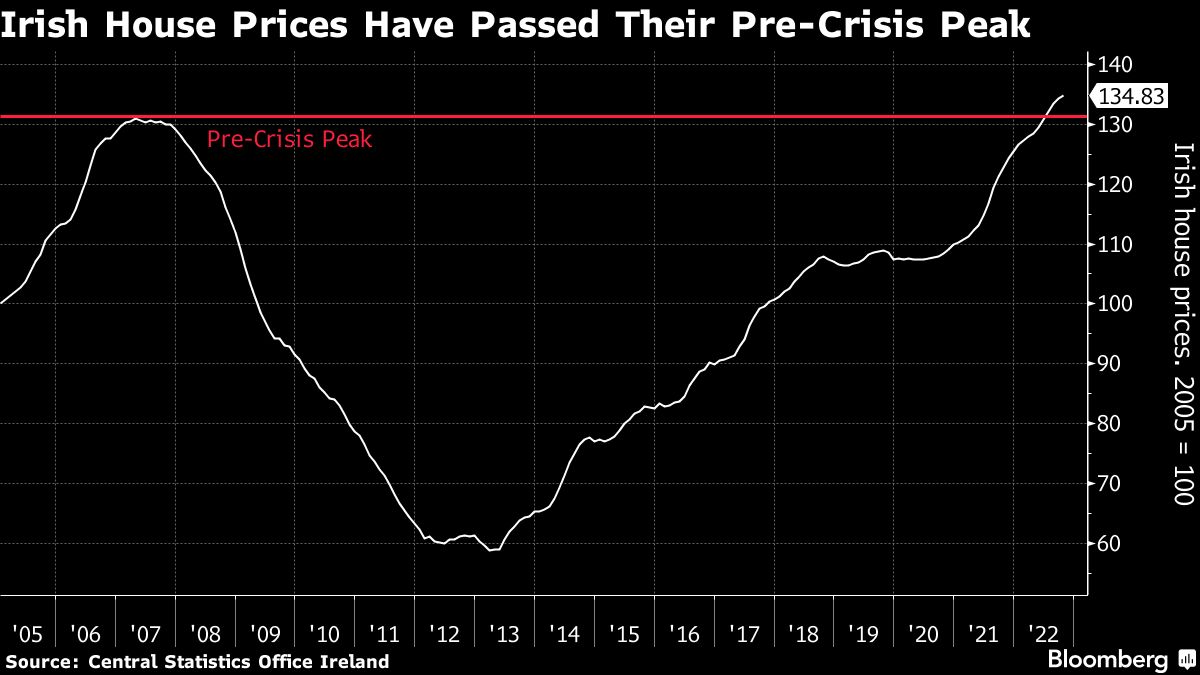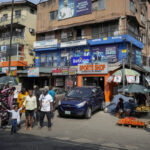
(Bloomberg) — Leo Varadkar will become Ireland’s prime minister for a second time this weekend under a coalition deal struck after the 2020 election.
Most Read from Bloomberg
Many things have changed since Varadkar left the office in June of that year during the initial onslaught of the Covid-19 pandemic. Some issues — such as the fallout from Brexit and the pressure on housing — will be more familiar.
The Fine Gael leader will take over the position from Fianna Fail’s Micheal Martin for the second half of a parliamentary term shared between two historic rivals with support from the Greens.
Issues surrounding the Northern Ireland Protocol — the part of the Brexit treaty which Varadkar negotiated in 2019 to keep the region within the European Union’s customs block — remain unresolved, though there have been reports of positive progress and talks have recently intensified. It is expected that Varadkar will speak to UK Prime Minister Rishi Sunak at an early opportunity on the matter.
Varadkar, who has served as deputy prime minister under Martin, returns to the helm as the country grapples with a cost-of-living crisis and high energy bills, exacerbated by Russia’s war on Ukraine. Meanwhile an influx of refugees has amplified concern about an increasingly acute housing crisis.
Housing will be one of the reshuffled government’s major policy priorities as it looks to deliver progress ahead of an election due by March 2025. The shortage of homes has been building up for a decade and with forecasts showing a decline in new construction next year one of Varadkar’s first pieces of legislation will be a planning bill.
To make matters worse, the number of private landlords exiting the market doubled in the second quarter from a year earlier, as rising property prices, rent caps and the prospect of higher mortgage payments made it increasingly unattractive to let.
At the start of August, there were just over 700 rental properties available in the whole of Ireland on popular listings website daft.ie — a fifth of the average from 2015-2019.
Issues such as housing and transport are raised consistently by company executives looking to invest in the country, Varadkar said at an event in Dublin this week.
“Investing in infrastructure will be one of the major priorities over the course of the next two years,” he said.
Beyond the top job, cabinet changes on Saturday are expected to limited.
“It really is a case of wanting to keep the ship steady,” said Mary Murphy, a senior lecturer in politics at University College Cork. It makes sense that he would want to do that “amid a backdrop of crisis,” she added.
In a recent poll, 48% of respondents said the government was handling the overall running of the country well.
A lot will hinge on the destination of the outgoing prime minister. The foreign ministry has been touted as one possibility for Martin. That would mean the incumbent, Simon Coveney, taking Varadkar’s previous position in the department of enterprise.
What is already known is that Finance Minister Paschal Donohoe will swap roles with the minister for public spending, Michael McGrath, under a long-standing agreement between their respective parties.
Donohoe leaves Ireland’s finances in a position of relative strength with a strong government surplus expected for the year. Even so, growth is expected to slow significantly next year amid high inflation and weaker business and consumer sentiment.
The new government is unlikely to deliver any significant change in economic policy, despite Donohoe and McGrath coming from different parties, according to Goodbody Chief Economist Dermot O’Leary.
“It feels like it’s continuity,” he said. “Because the two ministers have worked so closely over the last number of years in pretty extraordinary times from a fiscal-policy setting point of view — and they’ve come out of it at the other end in arguably the best physical position of any country in Europe — it’s going to be perceived as another safe pair of hands.”
Most Read from Bloomberg Businessweek
©2022 Bloomberg L.P.




